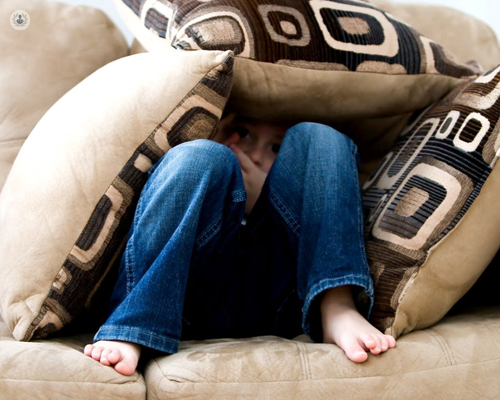Thyroid disorders in children are relatively uncommon but can significantly impact a child’s growth, development, and overall health. The thyroid gland, located at the base of the neck, plays a critical role in regulating metabolism by producing hormones such as thyroxine (T4) and triiodothyronine (T3). These hormones influence many bodily functions, including energy use, growth, and brain development.
When the thyroid gland is underactive (hypothyroidism) or overactive (hyperthyroidism), it can lead to various health issues. Here to talk more about this is revered consultant paediatrician and endocrinologist, Dr Nirit Braha.

Types of thyroid disorders
The two most common thyroid disorders in children are hypothyroidism and hyperthyroidism. Hypothyroidism occurs when the thyroid gland doesn’t produce enough hormones. In children, this can be caused by congenital factors (being born without a properly functioning thyroid gland), autoimmune diseases like Hashimoto’s thyroiditis, or iodine deficiency.
Hyperthyroidism, on the other hand, is characterized by an overproduction of thyroid hormones. The most common cause in children is Graves’ disease, an autoimmune condition.
Symptoms
The symptoms of thyroid disorders in children vary depending on the type of condition. Children with hypothyroidism may exhibit signs like fatigue, weight gain, slow growth, constipation, cold intolerance, dry skin, and delayed puberty. If left untreated, hypothyroidism can lead to intellectual disabilities and stunted growth.
In contrast, hyperthyroidism can cause rapid heart rate, weight loss, restlessness, sweating, tremors, difficulty concentrating, and an enlarged thyroid gland (goiter). Children with hyperthyroidism may also have trouble sleeping and exhibit behavioural changes, including irritability.
Diagnosis and treatment
Early diagnosis of thyroid disorders is crucial for effective treatment. A blood test to measure levels of thyroid hormones (T3, T4) and thyroid-stimulating hormone (TSH) is typically the first step in diagnosing these conditions. In some cases, imaging tests like an ultrasound or a radioactive iodine uptake test may be used to further assess the thyroid.
Treatment depends on the type of disorder. Hypothyroidism is usually treated with daily thyroid hormone replacement therapy (levothyroxine), which restores hormone levels to normal. Hyperthyroidism treatment may include anti-thyroid medications, radioactive iodine therapy, or, in rare cases, surgery to remove part or all of the thyroid gland.
Long-term outlook
With early and appropriate treatment, most children with thyroid disorders can lead healthy, active lives. Regular monitoring by a paediatric endocrinologist ensures that treatment remains effective and that children continue to grow and develop normally.



